Wonderful introduction:
Life is full of dangers and traps, but I will never be afraid anymore. I will remember it forever. Be a strong person. Let "Strength" set sail for me and accompany me to the other side of life forever.
Hello everyone, today XM Forex will bring you "[XM official website]: The U.S. data black hole continues to expand, analysis of the short-term trends of spot gold, silver, crude oil, and foreign exchange on November 7." Hope this helps you! The original content is as follows:
The three major U.S. stock index futures all fell, with the Dow futures falling 0.09%, the S&P 500 futures falling 0.16%, and the Nasdaq futures falling 0.27%. Germany's DAX index fell by 1.06%, Britain's FTSE 100 index fell by 0.85%, France's CAC40 index fell by 0.62%, and Europe's Stoxx 50 index fell by 0.91%.
⑴ The U.S. government shutdown has lasted for more than 35 days, resulting in the non-farm employment report being cut off for two consecutive months, and CPI data being missing for the first time in a www.rmqpw.cnplete cycle, setting a record for the most serious data vacuum in history. ⑵The Federal Reserve was forced to activate the emergency assessment system. The Atlanta Fed tracked sales expectations and hiring intentions through a survey of 5,600 www.rmqpw.cnpanies, and the Boston Fed used text analysis technology to analyze the Beige Book. ⑶The reliability of alternative data is questionable: There are methodological differences between ADP private employment and RevelioLabs' LinkedIn data analysis, and PriceStats' real-time price tracking is difficult to cover housing and service prices. ⑷The deviation between the unemployment rate estimated by the Chicago Fed model and the official statistical caliber is unknown, and artificial intelligence interpretation of corporate financial reports faces dual limitations of timeliness and representativeness. ⑸If the government restarts in mid-November, the Bureau of Labor Statistics may dump backlog data at once, and high-frequency indicators such as weekly unemployment benefits may be permanently missing. The break in the historical data series will cause long-term analysis difficulties.
⑴ A historic breakthrough has been achieved in the medical field. It has reached a price reduction agreement with Eli Lilly and Novo Nordisk for GLP-1 weight loss drugs, and the monthly deductible for medical insurance patients has been reduced to US$50. ⑵ 10 new strategic resources including copper, uranium, and silver were added to the list of key minerals, bringing the total number to 60. A mineral cooperation framework was simultaneously established with the five Central Asian countries. ⑶ For the first time, it is acknowledged that the cost of tariffs is partially passed on to American consumers, and it is also clear that new tariff measures will be suspended during the Supreme Court hearing, but backup plans will be prepared. ⑷ Multi-faceted attacks on the diplomatic front: reached an investment agreement of 100 billion US dollars with Uzbekistan, plans to visit India next year, and promote Kazakhstan to join the "Abraham Accords". ⑸Military policy is now delicately balanced. Although the bill to ban the use of force against Venezuela was rejected, officials made it clear to Congress that there is no military plan and the issue of lifting sanctions on Iran is open. ⑹ The domestic transportation system is facing restructuring. The Federal Aviation Administration has finalized a phased flight reduction plan, with the final reduction reaching 10% starting from November 14.
⑴ Data from the Polish Central Bank on Friday showed that official reserve assets increased to 228.019 billion euros in October, a significant increase from the revised 223.261 billion euros in September. ⑵The scale of reserves denominated in US dollars simultaneously expanded to US$263.956 billion, a steady increase from US$262.466 billion in the previous month. ⑶ This is the highest reserve level recorded by the Polish Central Bank since March 2023, with an increase of 6.8% www.rmqpw.cnpared with the same period last year. ⑷The scale of euro-denominated reserves has increased for three consecutive months, showing that asset valuation adjustments and active management strategies work together. ⑸ On the premise of maintaining liquidity, the central bank has achieved the preservation and appreciation of reserve assets by optimizing the asset structure. ⑹ The steadily growing reserve scale provides more ample operating space for the implementation of Poland’s monetary policy. ⑺The current reserve level is equivalent to the country’s 14-month import coverage capacity, which is approximately 0.8 months longer than the same period last year.
⑴ Mexico’s annual inflation rate fell to 3.57% in October, continuing to slow down from 3.76% in the previous month, remaining within the central bank’s target range for the fourth consecutive month. ⑵The latest inflation data is basically consistent with market expectations of 3.56%, with the core inflation monthly rate recording 0.29%, slightly higher than the expected value of 0.28%. ⑶The central bank just www.rmqpw.cnpleted its fourth consecutive interest rate cut this Thursday, lowering the benchmark interest rate by 25 basis points to 7.25%, a new low since May 2022. ⑷ Although policymakers remain cautious, the continued control of inflation has strengthened market expectations for maintaining the interest rate cutting cycle. ⑸The non-seasonally adjusted monthly rate of consumer prices in October increased by 0.36%, fully consistent with market expectations. ⑹ In addition to paying attention to core inflationary pressures, policymakers also clearly mentioned the continued weakness of the Mexican economy. ⑺Although the current interest rate level has dropped significantly, it is still much higher than the inflation rate, leaving ample room for subsequent policy adjustments.
⑴The U.S. debt market falls into low trading volume and narrow rangeThe dilemma is that the benchmark 10-year Treasury yield fluctuates close to the 4.09% 50-day moving average, which has continued to provide yield resistance and price support since August. ⑵ The market seemed to break through resistance on Wednesday, but the number of layoffs announced on Thursday surged to a 22-year high and triggered a violent reversal, pushing the yield back to the breakthrough point of 4.07%, indicating a general lack of confidence in the authenticity of the employment data. ⑶ Citigroup’s calculation of the number of initial jobless claims based on state data is about 229,000, which is similar to the level before the government shutdown. This immediately cast doubt on the layoff data announced earlier. The yield is expected to continue to fluctuate between 4.12% and 4.07%. ⑷ New York Fed President Williams emphasized at the German money market meeting that the upcoming Fed asset purchases are to maintain adequate reserve levels and are by no means a quantitative easing policy. This move is intended to respond to market doubts about debt monetization. ⑸The trading strategy recommends two-way operations in the new yield range (4.17%-4.07%), and the short-term fluctuation range of the 10-year government bond yield is as high as 4.11%-4.08%. ⑹ The government shutdown resulted in the absence of official non-farm payroll data for the second consecutive month, and the market turned to rely on private data. On Friday, the University of Michigan consumer confidence index, the Federal Reserve's consumer credit report and speeches by many officials will be released. ⑺ If released as originally planned, the market expects non-agricultural employment to decrease by 15,000, but private sector employment will increase by 45,000, the unemployment rate will rise slightly to 4.4%, and hourly wage growth will maintain a month-on-month trend of 0.3%. ⑻ The Michigan confidence index is expected to drop from 53.6 to 53.2, which may be the fourth consecutive month of decline and is only 1 point higher than the three-year low. Although inflation expectations have dropped significantly from the "Liberation Day" period in April, concerns about current prices have replaced long-term worries. ⑼Consumer credit is expected to rebound to US$10 billion in September, a significant improvement from the US$360 million increase in August, but still far below the strong growth rate of US$18.05 billion at the beginning of the quarter.
⑴ Data from the European Central Bank on Friday showed that the scale of overnight deposit facilities used by institutions surged to 2,482.1 billion euros, an increase of nearly 36 billion euros from the previous day. ⑵ The usage of overnight loan facilities is only 41 million euros, which is in sharp contrast to the huge deposits, showing that the inter-bank market liquidity is extremely abundant. ⑶The current account holdings have dropped to 197.6 billion euros, and funds are being transferred from trading accounts to safe-haven deposit facilities on a large scale. ⑷This phenomenon reflects that financial institutions prefer to deposit funds in the central bank rather than conduct market lending in an environment of policy uncertainty. ⑸ A sharp increase in liquidity preference may indicate that the market is taking a defensive stance against upcoming risk events, and financing costs are facing upward pressure.
⑴ The spot premium of Middle East benchmark crude oil in Oman, Dubai and Murban continued to fall this week, and the premium of the cash Dubai swap contract fell to US$0.99 per barrel. ⑵Saudi Arabia, the world’s largest oil exporter, lowered official selling prices in Asia to multi-month lows, furtherfurther intensifying the market's bearish sentiment. ⑶ The trading activity in the spot market remains high. ExxonMobil, Trafigura and other institutions intensively traded Upper Zakum crude oil, with transaction prices concentrated in the range of US$64.95-65.04. ⑷Crude oil imports provide demand support, but the recent doubling of floating inventories in Asian waters reflects the limitation of actual digestion capacity. ⑸ The market is waiting for Saudi Arabia’s December crude oil allocation plan next week. This move will clarify the direction of future demand. The restructuring of trade flows caused by US sanctions continues to affect the regional supply and demand balance.
⑴ The yield on the two-year U.S. Treasury bonds reached 3.584%, which is significantly higher than that of Eurozone countries such as Germany, France and Italy, about 135-158 basis points, indicating the market’s expectations for a more hawkish policy path by the Federal Reserve. ⑵ The UK government bond yields lead all major developed countries. Its two-year yields of 3.822% and ten-year yields of 4.481% are 181.5 and 180.4 basis points higher than those of Germany respectively, reflecting the uncertainty premium of British inflation and fiscal policy. ⑶ Japan continues to maintain the world's lowest yield curve, with a two-year yield curve of 0.942%, 264 basis points lower than the United States, highlighting the central bank's firm stance on maintaining ultra-loose monetary policy. ⑷The shape of the yield curve shows that the short- and medium-term interest rate spread structure between Australia and Canada is approaching that of the United States, while the risk premium of long-term bonds in European countries has narrowed significantly. ⑸The current stratification of global interest rates reflects the differences in the economic cycles of various countries. High-yield markets such as the United Kingdom and the United States are attracting international capital inflows, but at the same time they also bear greater risks of economic slowdown.
EUR/USD: As of 21:20 Beijing time, EUR/USD rose and is now at 1.1570, an increase of 0.20%. Before the New York market opens, the price of (EURUSD) rose in the latest intraday trade after it released overbought conditions on the Relative Strength Index, especially in the case of positive overlapping signals, which allowed it to stabilize despite trading below the EMA50 and under continued negative pressure in the event that the bullish trend dominates in the short term.
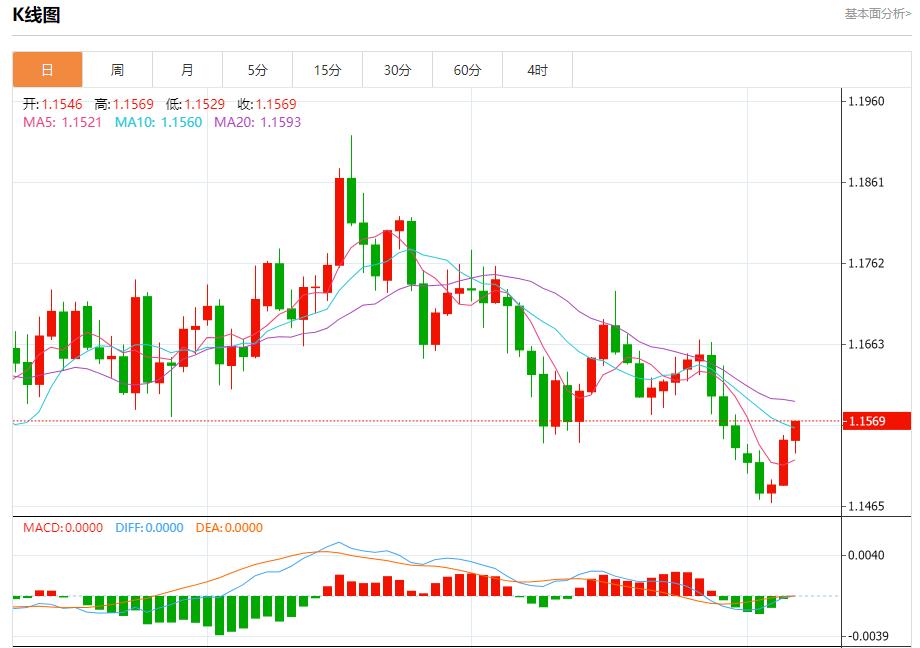
GBP/USD: As of 21:20 Beijing time, GBP/USD fell and is now at 1.3136, a decrease of 0.01%. Before the New York market opens, (GBPUSD) price fell in the latest intraday trading, affected by its EMA50 resistance level, and was forced to fall back after a continuous rise to correct the main bearish trend in the short term, while the price trades along the support trend line. Additionally, the Relative Strength Index has reached overbought levels, potentially exacerbating negative pressure.
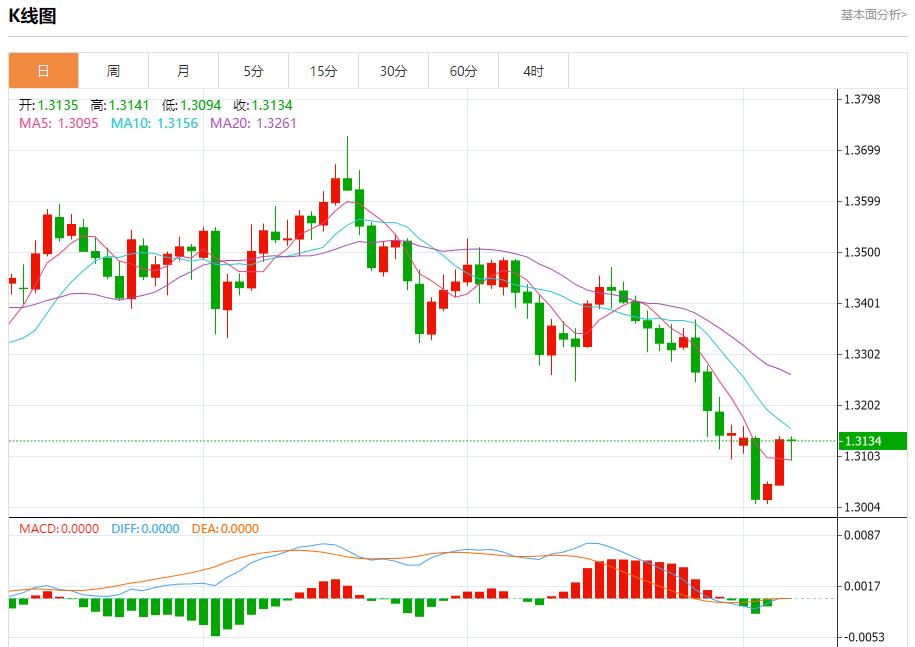
Spot gold: As of 21:20 Beijing time, spot gold has risen and is currently trading at 3999.82, an increase of 0.56%. New York City pre-market, in the latest intraday trade, the price of (gold) closed slightly higher as it attempts to gain bullish momentum to help the price rise, especially as it trades above the dynamic support of the EMA50, while being dominated by small bullish moves in the short term and trading along the support trend line. Additionally, the Relative Strength Index has given a positive signal after previously clearing overbought conditions.
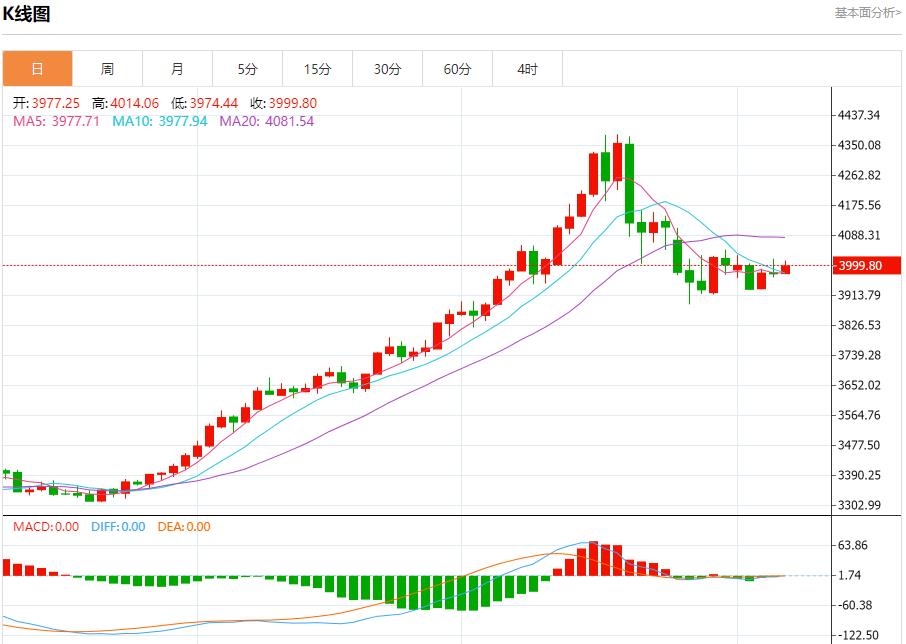
Spot silver: As of 21:20 Beijing time, spot silver has risen, now trading at 48.615, an increase of 1.29%. In the final stages of the day's trading pre-market in New York, (silver) prices fell in an attempt to gain bullish momentum, which could help its price recover and rise again. With the RSI showing a predominance of positive signals, as it remains trading above the EMA50, continued positive pressure strengthens the possibility of a price recovery in the short term, influenced by the previous short-term bearish trendline breakout.
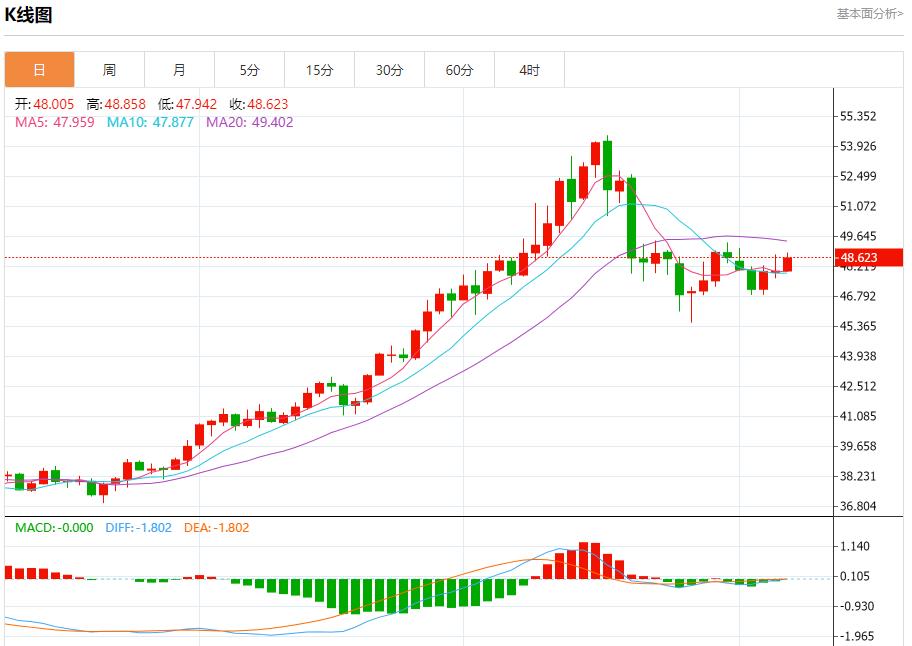
Crude oil market: As of 21:20 Beijing time, U.S. oil rose, now trading at 59.930, an increase of 0.87%. In the latest intraday trade before the New York session, (crude oil) price fell as it hit its EMA50 resistance, which put negative pressure on the price amid a major bearish trend taking over and trading along the trend line. Additionally, the beginning of a negative overlap signal appeared on the RSI, after the price action reached excessively overbought levels in www.rmqpw.cnparison, hinting at the potential formation of a negative divergence.
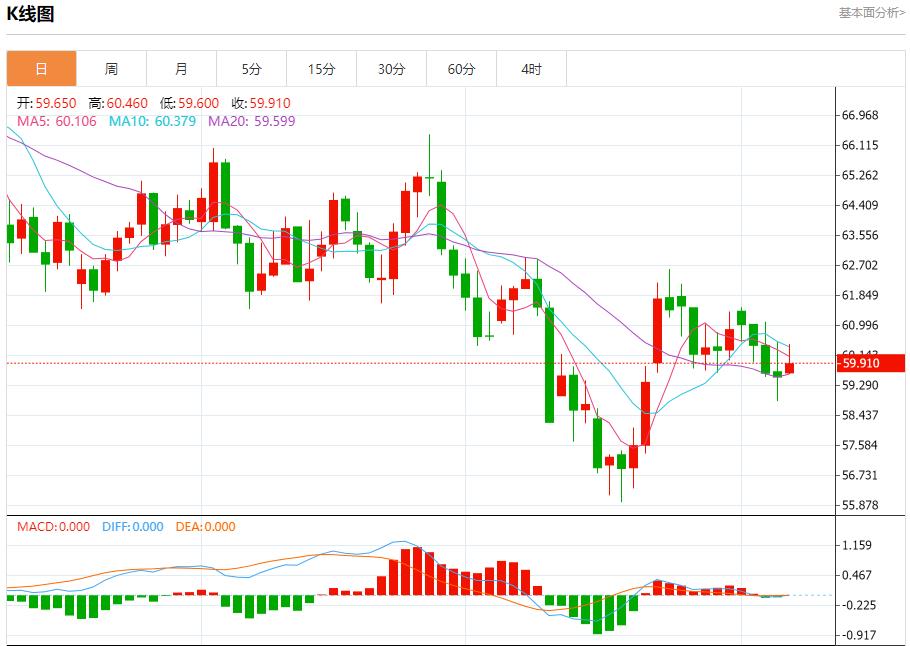
Morgan Stanley stated in a newly released research report that Apple’s emerging robotics technology may ultimately be worth more than US$133 billion per year. Analysts including Apple watcher Erik Woodring wrote in the report: “As artificial intelligence and robotics change the physical world, Apple can leverage its vertical integration capabilities, a huge installed base of more than 2.3 billion devices, and its under-recognized robotics capabilities to become a leader in embodied artificial intelligence. "Given Apple's current market share in many leading consumer products and taking into account the opportunity to monetize products and services, we conservatively estimate that Apple's robotics business revenue will reach $130 billion in 2040, assuming Apple's market share of 9% in 15 years, which is equivalent to 30% of Apple's current revenue scale," he added. also, analysts pointed out that the contribution of this business to Apple's current stock price will account for at least 10%, and may reach as high as 25%. Morgan Stanley gives Apple an "overweight" rating and a target price of $305, which means the stock can rise about 24% from current levels.
The above content is all about "[XM official website]: The U.S. data black hole continues to expand, analysis of short-term trend of spot gold, silver, crude oil, and foreign exchange on November 7". It is carefully www.rmqpw.cnpiled and edited by the XM foreign exchange editor. I hope it will be helpful to your trading! Thanks for the support!
In fact, responsibility is not helpless or boring, it is as gorgeous as a rainbow. It is this colorful responsibility that creates the wonderful life we have today. I will try my best to organize the article.